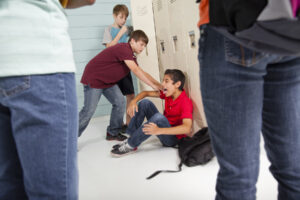When confronted with a probable assault and battery charge, one of the first legal ideas that comes to mind is self-defense. While this is a helpful defense, it only applies in a few situations and requires the knowledge of a qualified attorney to employ. When a juvenile is charged with committing physical violence on another person, his or her defense may be based on a narrow reading of the law.
Keep reading to get the facts and then contact Law Office of Michael L. Fell at (949) 585-9055 to request a free legal consultation.
Understanding assault and battery charges
To begin, it's critical to comprehend the legal definitions of assault and battery. These are two different charges in California that are defined as follows:
Assault is defined as the "unlawful effort" to hurt another person, as well as the ability to do so. Assault does not indicate that someone was hurt; rather, it means that the defendant tried to hurt someone else. In addition, the defendant had to be capable of causing injury to someone. Threatening to fight someone is not deemed assault unless the first punch is thrown.
Battery, unlike assault, is defined as the "willful" use of force or violence against another person. If someone initiated a fight then injured another person, the charge would be upgraded from assault to battery.
Adult and juvenile courts are different in their response to assault charges
Adults and adolescents can both be prosecuted with assault and battery, but the procedures are different. Adults will face misdemeanor or felony charges based on aggravating elements including the use of a weapon, the severity of the victim's injuries, and whether or not the victim was a protected individual. Adult cases go via the criminal court system, and they may be sentenced to county jail or state prison. Juvenile offenses, on the other hand, are handled by the Juvenile Court in each county.
Juvenile Court focuses on rehabilitating rather than punishing juvenile offenders under the age of 18. When a juvenile is charged with assault and/or battery, the court will consider all of the circumstances in the case and, if the juvenile is found guilty, he will be labeled "delinquent" and become a "ward of the court." This implies that the court has power over the juvenile's penalties and rehabilitation, allowing it to impose community service, probation, curfews, counseling, and other limitations to help the juvenile change his or her conduct. If a juvenile's activities are linked to a gang crime, he may face more severe penalties.
Schools often have their own penalties
It's crucial to remember that these penalties are distinct from those imposed by the juvenile's school. Many schools have zero-tolerance policies for fighting, whether it occurs on or off the school grounds. If a juvenile court convicts him of assault and/or battery, he will very certainly be expelled from school. However, if a juvenile's counsel successfully defends him in court, the juvenile's school record may be unaffected.
If your child has been accused of assault and battery when they were simply defending themselves, contact Law Office of Michael L. Fell at (949) 585-9055 to request a free legal consultation with an experienced attorney.


